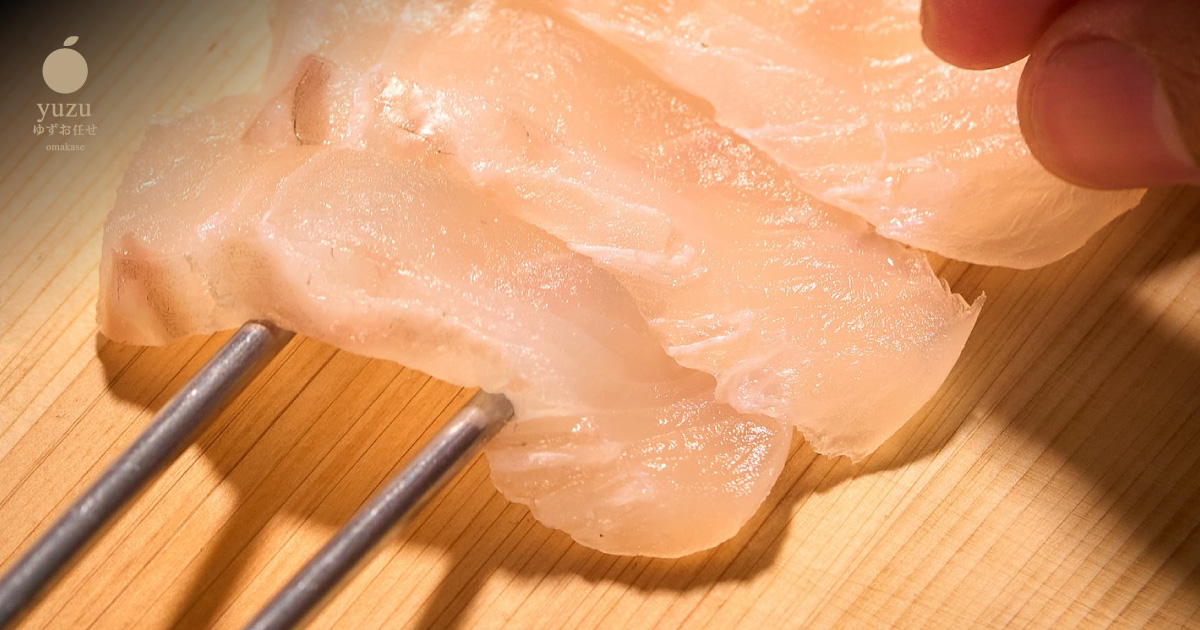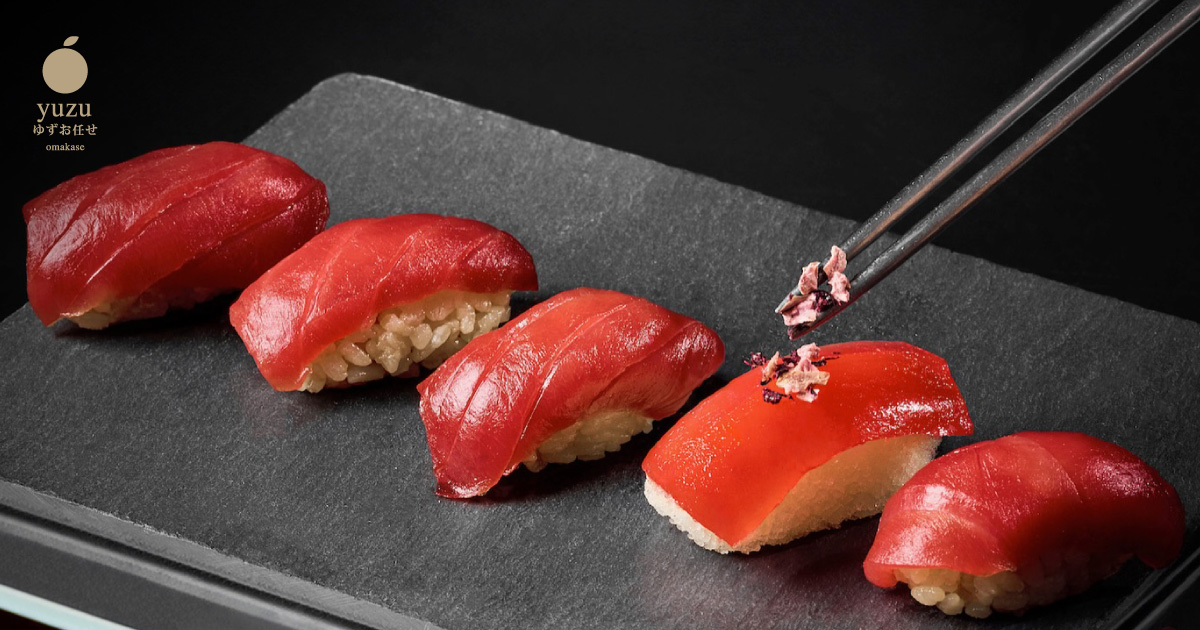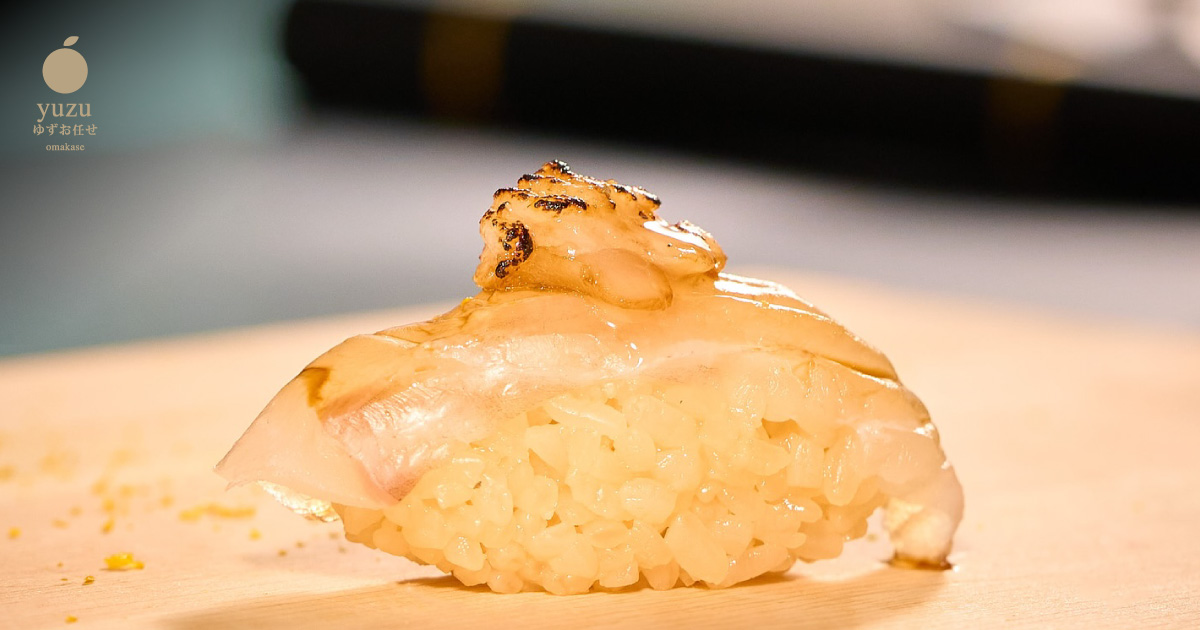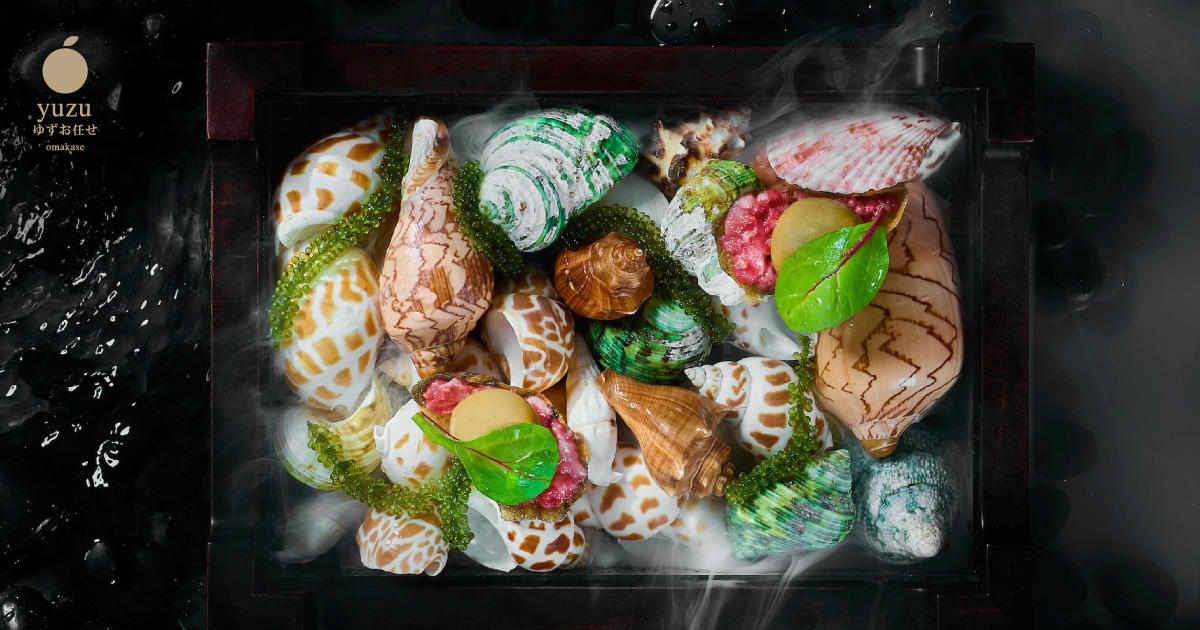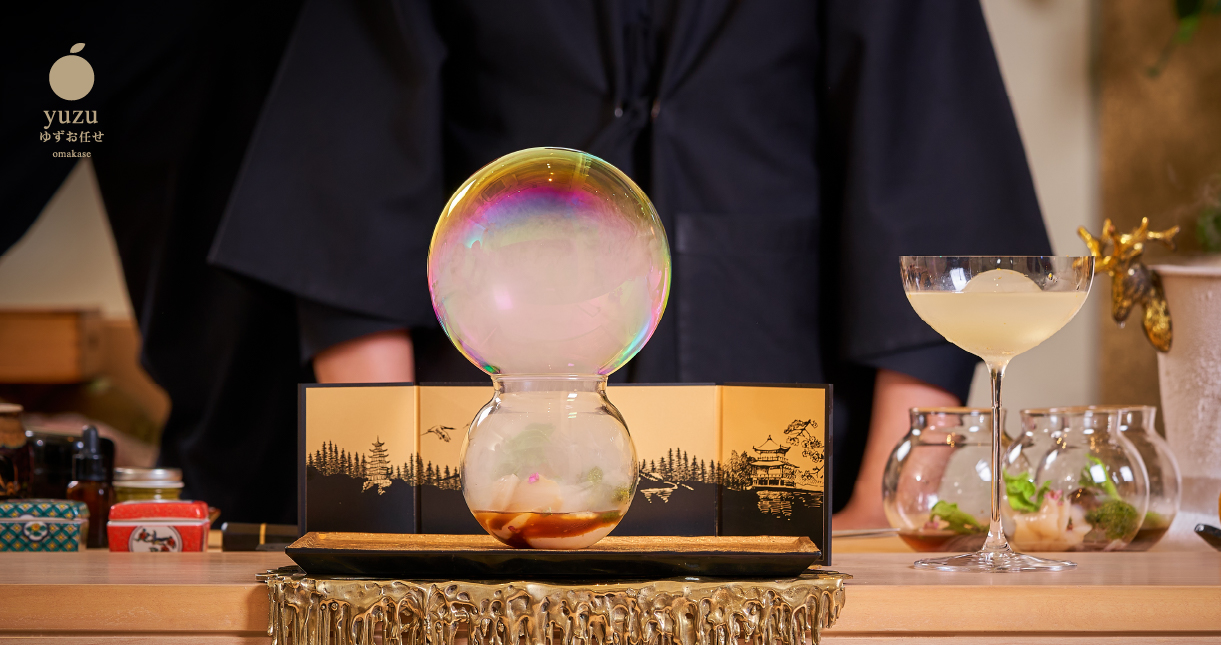
The Global Influence on Japanese Cuisine at Yuzu Omakase
In the bustling heart of Bangkok, Yuzu Omakase stands as a testament to the harmonious fusion of traditional Japanese cuisine with global culinary influences. Located at 258/9-10 Siam Square Soi 3, 2F Pathumwan, Yuzu Omakase integrates international techniques and ingredients into its dishes, creating a unique and innovative dining experience. This article explores how Yuzu Omakase masterfully blends these global influences with the rich traditions of Japanese cuisine.
The World ● 2024 Aug 19
The Global Influence on Japanese Cuisine at Yuzu Omakase
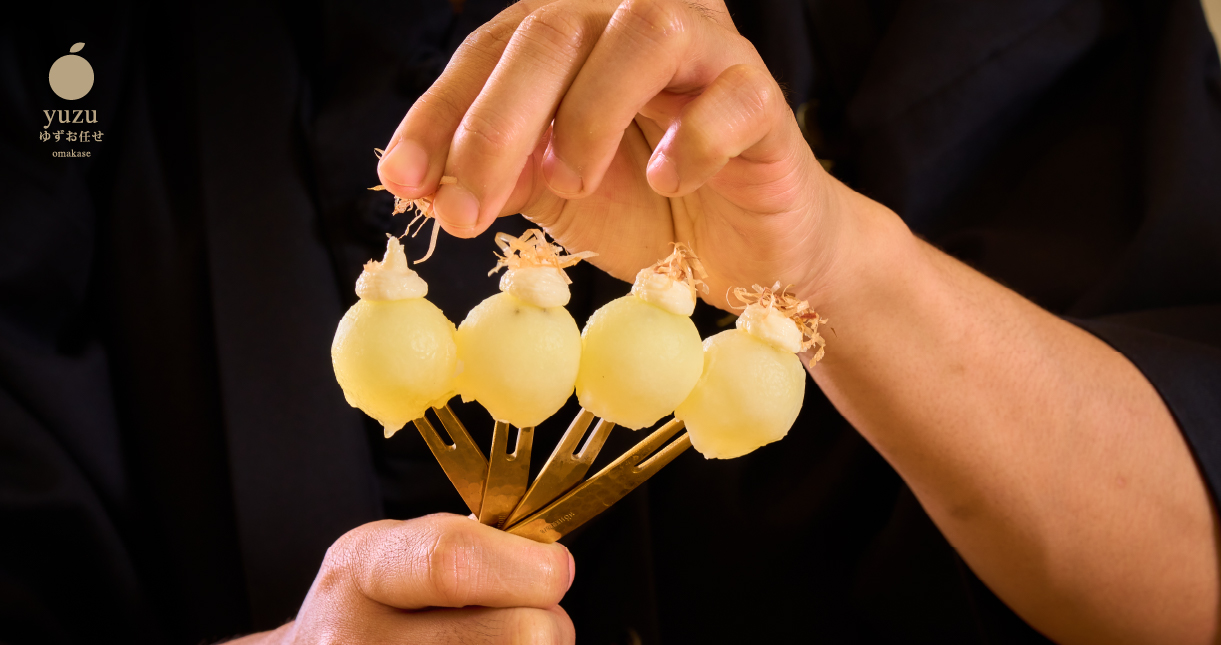
The Philosophy of Fusion Cuisine at Yuzu Omakase
Embracing Global Techniques and Ingredients
Yuzu Omakase’s culinary philosophy revolves around embracing the best of global culinary techniques and ingredients while staying true to the essence of Japanese cuisine. This approach allows the chefs to innovate and elevate traditional dishes, offering diners a fresh and exciting gastronomic journey.
Innovation with Respect to Tradition
While innovation is key at Yuzu Omakase, there is a deep respect for the time-honored techniques and flavors of Japanese cuisine. The chefs skillfully balance innovation and tradition, ensuring that each dish honors its roots while showcasing contemporary creativity.
Signature Dishes Reflecting Global Influences
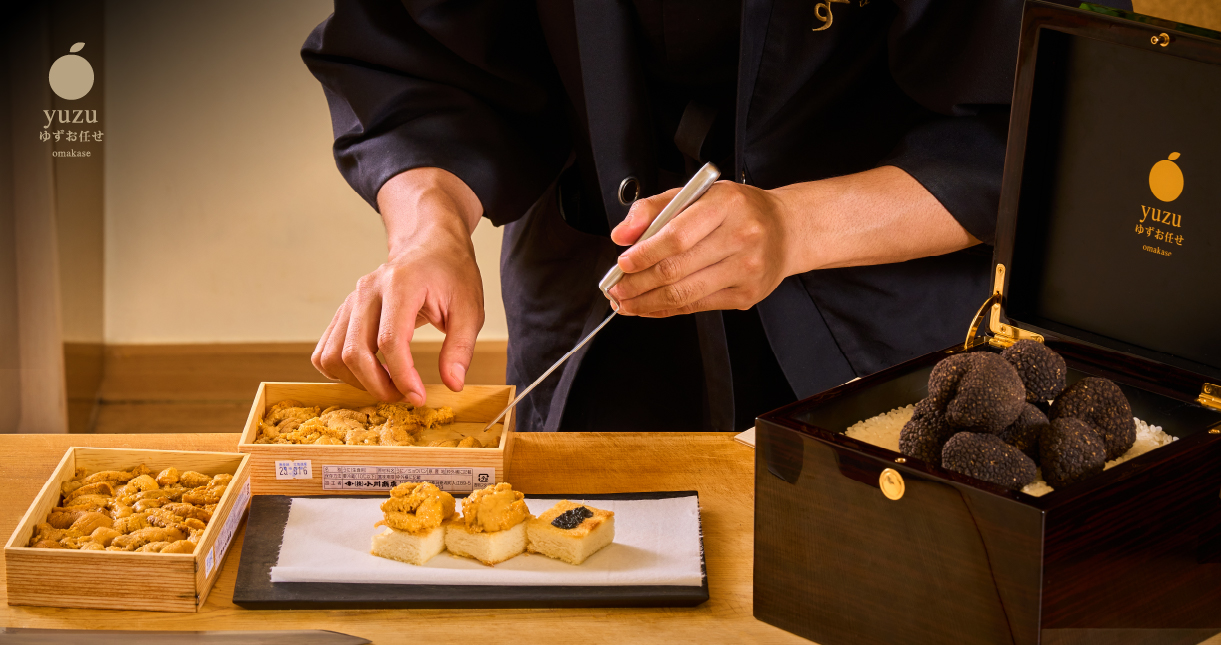
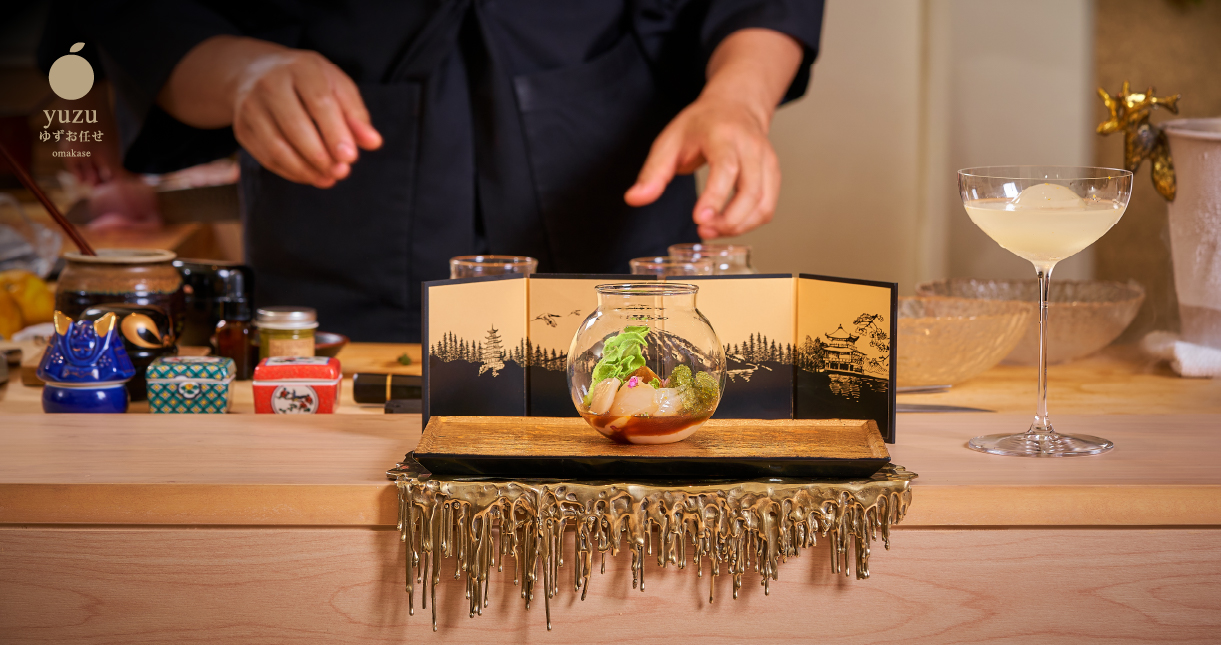
1. Grilled Otoro and Crispy Iberico
Ingredients
Grilled otoro (fatty tuna), crispy Iberico pork
Description
This dish exemplifies the fusion of Japanese and Spanish culinary traditions. The rich, buttery texture of grilled otoro pairs perfectly with the savory crunch of crispy Iberico pork, creating a delightful contrast in texture and a unique blend of flavors. The combination highlights how global influences can enhance traditional Japanese ingredients.
2. Hotate/Taraba Bubble
Ingredients
Fresh hotate (scallop), taraba (king crab), citrus bubble
Description
The hotate and taraba bubble dish features the sweetness of fresh scallops and king crab, accented by a refreshing citrus bubble. This dish incorporates molecular gastronomy techniques, adding a modern twist to the presentation and flavor profile, showcasing the influence of contemporary culinary trends on traditional Japanese seafood.
3. Uni Abuta Toast Truffle
Ingredients
Sea urchin (uni), toasted bread, truffle
Description
Uni, or sea urchin, is a beloved ingredient in Japanese cuisine, known for its creamy texture and briny flavor. At Yuzu Omakase, uni is paired with the earthy aroma of truffle and served on toasted bread, combining Japanese and Western culinary elements. This dish exemplifies how simple ingredients can be transformed into a luxurious and sophisticated experience.
4. Negitoro Roll
Ingredients
Fatty tuna (negitoro), finely sliced scallions, sushi rice, nori
Description
The negitoro roll combines the rich, buttery flavor of fatty tuna with the fresh, sharp taste of scallions. This hand roll showcases the influence of modern sushi trends, incorporating elements that appeal to contemporary palates while maintaining the integrity of traditional sushi craftsmanship.
5. Chawanmushi with Truffle
Ingredients
Savory egg custard, black truffle
Description
Chawanmushi, a traditional Japanese savory egg custard, is elevated with the addition of aromatic black truffle. This fusion of Japanese and French culinary elements results in a dish that is both familiar and innovative, highlighting how global ingredients can enhance traditional Japanese dishes.
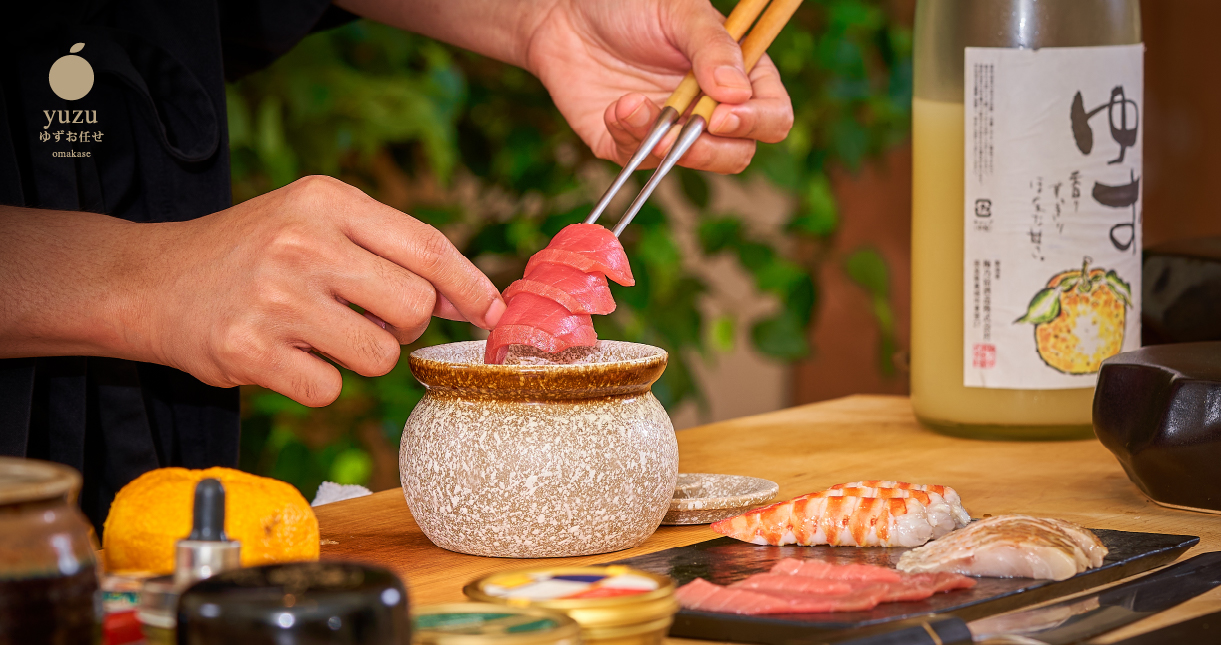
Techniques and Practices from Around the World
Molecular Gastronomy
Yuzu Omakase incorporates molecular gastronomy techniques to create visually stunning and innovative dishes. Techniques such as spherification and foaming add a modern twist to traditional ingredients, enhancing both the presentation and the sensory experience of the food.
Sous Vide Cooking
Sous vide cooking, a method that originated in France, is used at Yuzu Omakase to achieve precise temperature control and perfect textures. This technique ensures that ingredients are cooked evenly and retain their natural flavors and nutrients, elevating the quality of the dishes.
Fermentation and Pickling
Fermentation and pickling, techniques deeply rooted in Japanese culinary tradition, are complemented by global practices to create unique flavor profiles. Yuzu Omakase combines traditional Japanese methods with international flavors, resulting in dishes that offer a delightful balance of acidity, sweetness, and umami.
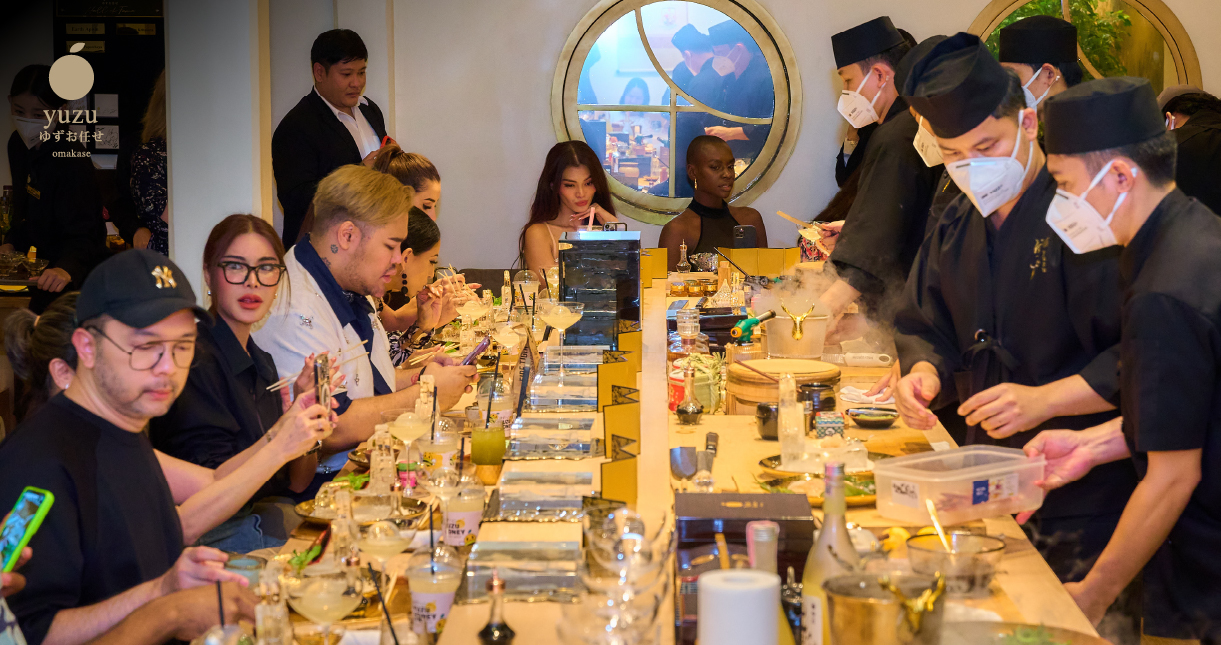
The Dining Experience: A Global Journey
A Multisensory Experience
Dining at Yuzu Omakase is a multisensory experience that takes guests on a global culinary journey. The use of international techniques and ingredients, combined with the artistry of Japanese cuisine, creates a dining experience that is both exciting and satisfying.
Visual Appeal and Presentation
The presentation of dishes at Yuzu Omakase reflects the influence of global culinary trends. Each dish is meticulously plated with artistic flair, showcasing the beauty of the ingredients and the creativity of the chefs. The visual appeal of the dishes enhances the overall dining experience, making each meal a feast for the eyes as well as the palate.
Personalized Service
The attentive and knowledgeable staff at Yuzu Omakase enhance the dining experience by providing personalized service. They are well-versed in the global influences and techniques used in the dishes and can offer insights and recommendations based on guests' preferences and dietary needs. This personalized approach ensures that each diner enjoys a unique and memorable experience.
The Impact of Global Influences on Well-Being
Nutritional Diversity
Incorporating global ingredients and techniques into the menu at Yuzu Omakase enhances the nutritional diversity of the dishes. The use of fresh, high-quality ingredients from around the world ensures that each meal is not only delicious but also rich in essential nutrients, supporting overall health and well-being.
Culinary Innovation
The fusion of global influences with traditional Japanese cuisine fosters culinary innovation, resulting in dishes that are both unique and familiar. This approach keeps the dining experience at Yuzu Omakase dynamic and exciting, encouraging guests to explore new flavors and textures.
Enhanced Enjoyment
The integration of global influences enhances the enjoyment of each dish, offering diners a rich and varied culinary experience. This approach appeals to contemporary tastes while respecting the traditions of Japanese cuisine, creating a perfect balance that delights the senses and satisfies the palate.
Conclusion
Yuzu Omakase masterfully integrates international culinary techniques and ingredients into traditional Japanese dishes, creating a unique and innovative dining experience. By embracing global influences while respecting the essence of Japanese cuisine, Yuzu Omakase offers diners a harmonious blend of tradition and innovation. The result is a menu that is both exciting and satisfying, providing a global culinary journey that promotes well-being and delight. Plan your visit to Yuzu Omakase and explore the magic of global influence on Japanese cuisine, where each dish is a celebration of culinary artistry and creativity.

RELATE



